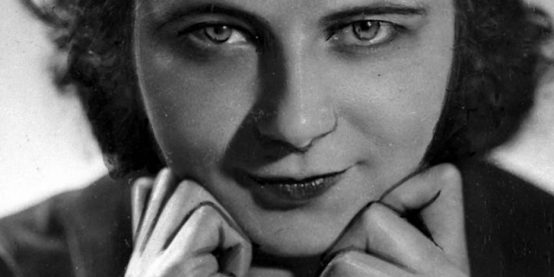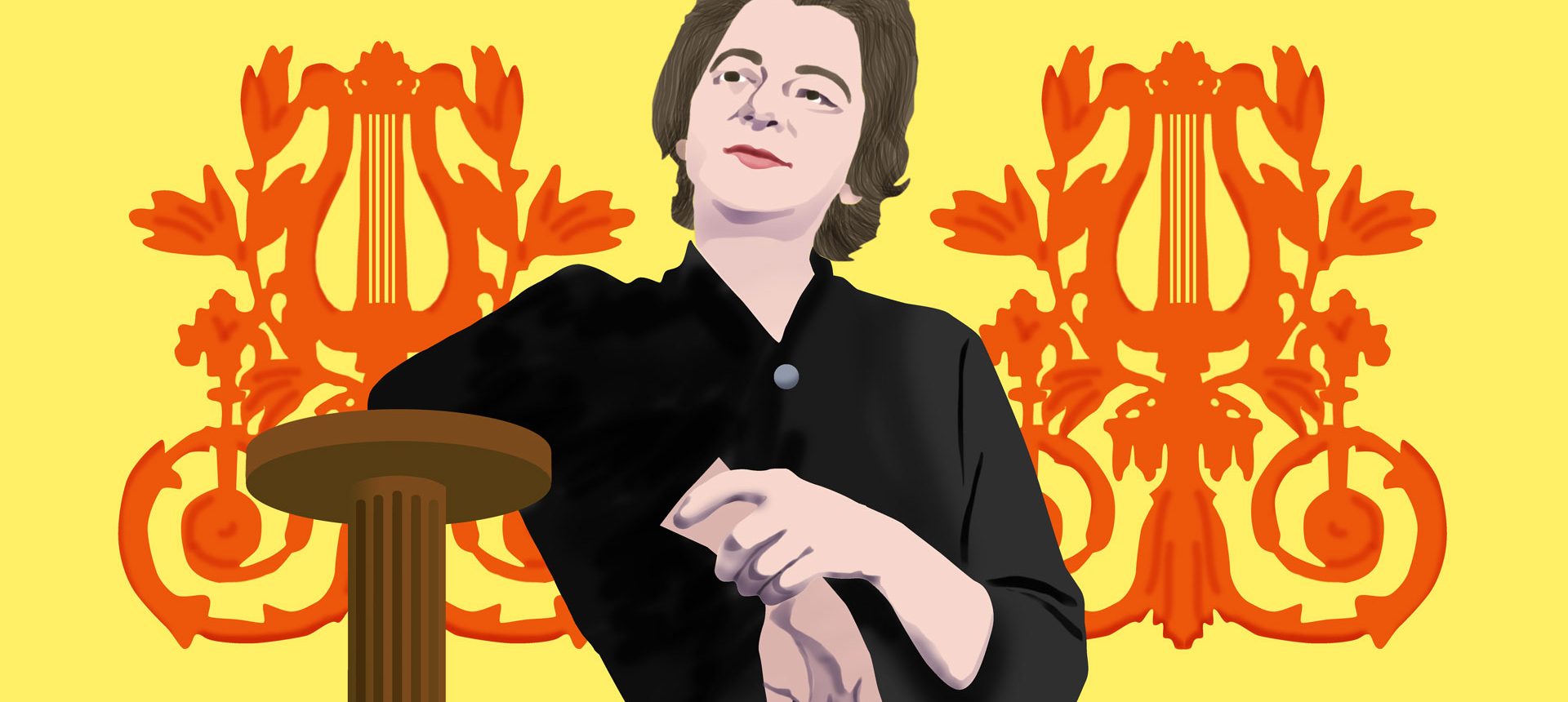“From her very first independent steps, you could see that she was a natural-born, true musician”. The words come from her contemporary colleague in Poland, Witold Lutosławski. He was a great admirer of Grażyna Bacewicz. And today he is not alone. After having been isolated by the Iron Curtain in Eastern Europe during the Cold War, Bacewicz has gained a reputation in the 21st century as the “First Lady” of Polish music.
Grażyna Bacewicz was born in the Polish city of Łódź in 1909 as the third of four children of the Lithuanian music educator Vincas Bacevičius and his Polish wife Maria Modlińska. The name Grażyna is derived from the Lithuanian adjective ‘gražus’, meaning ‘beautiful’. The family often spent their summers in Lithuania, a country that also longed for its independence. When the father took a teaching position in the provisional capital of Lithuania, Kaunas, Grażyna remained in Poland with her mother. She would divide most of the rest of her life between Łódź and Warsaw.
More about Grażyna Bacewicz
Bacewicz composed from about the age of 13, and went on to study violin and piano at the Warsaw Conservatory. After graduating, she traveled to Paris and apprenticed with Nadia Boulanger. The famous educator expressed her admiration for Bacewicz: “I don’t think we as teachers can give our students more than they already have.”
It was as a prominent violinist that Grażyna Bacewicz began her career in Poland. In 1936, she was offered the position of Concertmaster in the Polish Radio Orchestra under the direction of the conductor Grzegorz Fitelberg. It was he who noticed her talent for composition. 1936 was also the year Grażyna Bacewicz got married. During World War II, she remained in Warsaw with her husband and daughter Alina, giving secret concerts.
Her music is rooted in neoclassicism, which she combined with Polish folk tradition. The national pride combined with energy, honesty and lyricism make her music captivating. In the 1940s she wrote her Concerto for String Orchestra and the Second Piano Sonata, both of which show how, like Lutosławski, she found a way to speak with artistic integrity. Music for strings dominates Bacewicz’s output, and of her 11 solo concertos, seven are for violin. Chamber music forms the largest part of her repertoire, but there are also four symphonies, three ballets and a radio opera (King Arthur’s Adventures). Her greatest contribution to music history is considered to be the seven string quartets, which stand high in the 20th century repertoire. Number 1 came in 1938 and has a set of variations on a Lithuanian folk song at its heart, while number 7 from 1965 has a modernist touch. String Quartet No. 4 is one of Bacewicz’s most played works.

As an example of the contemporary Bacewicz wave, it can be mentioned that ten years ago there were only a handful of disc recordings of Bacewicz’s piano works. In 2011, Krystian Zimerman recorded the Second Piano Sonata and started something of a trend. In 2022 Peter Jablonski released an album of Bacewicz’s chamber works, and in 2023 the very first recording of the double piano concerto. Her solo piano concerto was recorded by Julia Kociuban in 2020. Bacewicz is regularly featured in the repertoire of major concert halls and has earned her rightful place among equals.
Grażyna Bacewicz died on January 17, 1969 of a heart attack just two and a half weeks before her 60th birthday. She left behind a life of political alignment but constant work, eager to consistently assert her own voice.
“I do not believe in inspiration,” Bacewicz wrote; for me composing is like sculpting in stone rather than putting the sounds of my imagination on paper.’
Listen to her music
Let the playlist tempt you with the very best of Grażyna Bacewicz

The composers behind the most famous masterpieces
Take the opportunity to get to know some of the composers behind the most famous classical masterpieces and listen to their music. Maybe it will be the start of a lifelong friendship.

